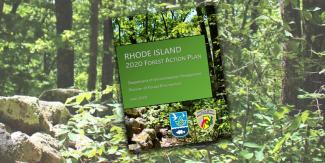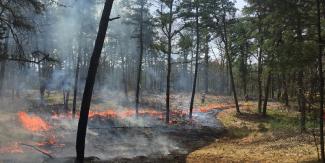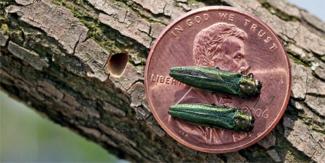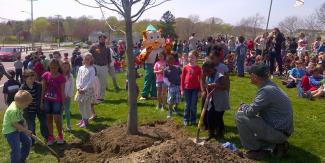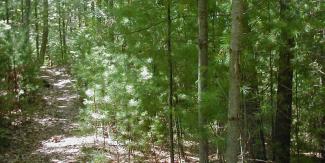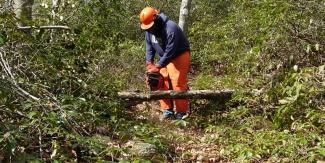Forest Environment
DEM’s Permit Application Portal is your one-stop shop for doing business with us.
The Department of Environmental Management (DEM) has launched a new online system for applications and forms administered by the Division of Agriculture and Forest Environment, including agricultural product registrations, commercial pesticide applicators, animal health permits and licenses, and forestry applications.
"It is a fact well known to most of you that the timber which once covered our hillsides, ameliorating our climate, beautifying the landscape, protecting our watersheds, and constituting one of the most valuable natural resources of the state, has now nearly all disappeared before the woodsman’s axe. It follows, therefore, that the protection and rapid growth of the succession of sprout and seedlings is a problem of interest and importance to the people."
- Jesse B. Mowry, Forest Commissioner, to the Rhode Island General Assembly; 1st annual report, 1907
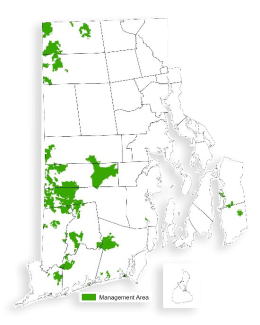
Since 1906, when the Rhode Island Forest Commission was first established, the forests of Rhode Island have been considered a valued and significant resource. The Commission, established at a low point in the forest cover of RI, has become RIDEM’s Division of Forest Environment (DFE) and the forests, which that first Commissioner described, recovered through the early 20th century as populations and industry shifted and changed. Since the 1970’s, however, land use and populations have shifted again and Rhode Island’s forests are experiencing development and fragmentation pressures, as well as the effects of a changing climate.
Maintaining a valued environmental, economic and social/recreation resource is a priority for RIDEM and the 40,000 acres of state-owned land, for which DFE shares responsibility with the Division of Fish & Wildlife, is highly valued. But privately-owned land in RI is also significant, benefitting all residents, affecting air and water quality, wildlife habitat and diversity, carbon sequestration, local economics and simply aesthetics. With funding provided through the USDA Forest Service, DEM also delivers several programs to assist RI landowners and residents:
Stewardship - assistance through the FFOS to support landowners managing their forests as working lands
Forest Health - information, education and monitoring introduced and native pests/diseases/plants
Forest Fire - assistance to volunteer fire departments and communities to plan and manage wildfire risk, wildfire training, Firewise®, as well as prescribed burning on DEM management areas
Urban & Community Forestry - assistance and education for communities and stakeholder groups to manage their existing community forest, plan for a successful future community forest, and prepare for emergencies
Forest Legacy - identifies important forestland and provides funding for the purchase of land or conservation easements to prevent conversion of the land to other uses.
Well-managed, healthy forests require management, planning, best management practices, whether on state-owned and managed land, or on private lands and benefits residents, wildlife, watersheds, municipalities and Narragansett Bay.

